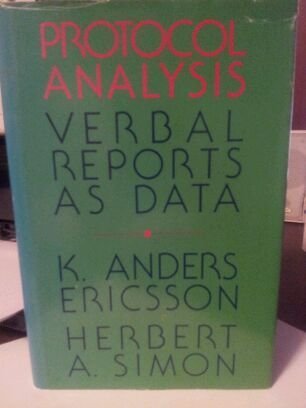Synopsis:
While psychologists have often employed the technique of protocol analysis--or the use of the subject's own verbal reports as data--in exploring cognitive processes, the nature and reliability of the method have been poorly understood. This book finally puts protocol analysis on firm ground by examining its underlying assumptions, techniques, and limitations. It addresses such key questions as what sorts of reports about what sorts of mental events are reliable; what the role of the investigator's interpretations should be in helping to understand such data; and what mental events cannot be explained by protocols.The authors describe a general theory of cognitive processes and structure, which, they argue, accounts for verbalization and verbal reports. The theory is presented in the form of an information processing model. Major issues surrounding the use and validity of verbal reports are taken up and empirical studies are discussed within the framework of the model. While the book focuses on reports of cognitive processes, the concepts and models it employs can be extended to such areas of verbal behavior as psychophysics, survey design, and measurement of personality traits."A Bradford Book"
Review:
"Although the theory of verbal reports is psychologically interesting in and of itself, this book will undoubtedly be read for its more practical aspects, as well. It provides an excellent introduction for those who wish to learn protocol analysis and a valuable reference for those who use it. Ericsson and Simon give a detailed discussion of how to code and analyze protocols, including a significant number of worthwhile examples. It is very fitting that one of the pioneers of the modern use of verbal data, Herb Simon, should be one of the authors of this important and sorely needed book...."--Michelene T. H. Chi, University of Pittsburgh
"About this title" may belong to another edition of this title.
![]()
